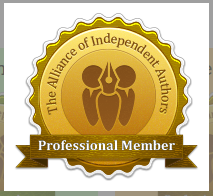|
In this week's post, I continue my 'Five' series, examining novels that proved highly controversial on their release. I'm a firm believer in adults being able to read whatever they choose. In my view, just because a book offends some people (usually because of sex or religion, those perennially divisive subjects!) it's no reason to deny it to others. The difficulty for this post was, of course, narrowing my selection down to five! Authors have frequently challenged prevailing social attitudes, giving me a deep pool from which to make my selection. Eventually I chose the following novels. 1. 'Brave New World' by Aldous Huxley 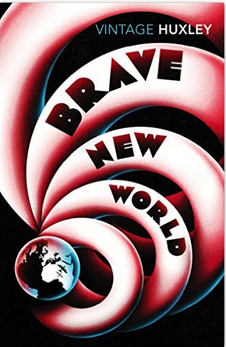 Aldous Huxley wrote 'Brave New World' in 1931, with publication taking place in 1932. From the start, the novel sparked controversy, being banned in Ireland on the grounds of offensive language and anti-religious themes. Not much has changed in the decades since, with the novel becoming one of the most hotly debated books in America. Readers have been infuriated by its sexually explicit scenes and bad language. It has also been banned in India due to its sexual content. As if that weren't enough, in 1982 Polish author Antoni Smuszkiewicz accused Huxley of plagiarism, citing two Polish novels written in the 1920s. According to him, their similarity to 'Brave New World' was so great that Huxley must have poached their plots. It's definitely a controversial book! Here's a synopsis: Far in the future, the World Controllers have created the ideal society. Through clever use of genetic engineering, brainwashing and recreational sex and drugs all its members are happy consumers. Bernard Marx seems alone harbouring an ill-defined longing to break free. A visit to one of the few remaining Savage Reservations where the old, imperfect life still continues, may be the cure for his distress... Sounds fascinating! I can't believe I've not yet read this classic novel, so it's going on my list. 2. 'Ulysses' by James Joyce 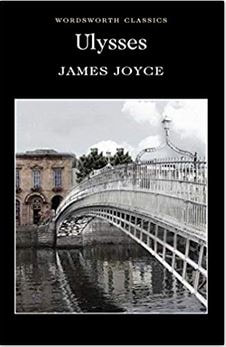 'Ulysses' first appeared in serial form and was then published as a novel in 1922 in Paris. Why France, when Joyce was Irish and the serialisation took place in an American journal? Controversial from the start, the book was banned in Ireland, the United States and Britain because it was considered obscene. As well as sexual imagery, 'Ulysses' includes detailed descriptions of bodily functions such as masturbation, menstruation and defecation. The Parisian publishing house clearly wasn't fazed by such matters. The book recounts the various events which befall Leopold Bloom and Stephen Dedalus in Dublin on 16 June 1904, including Bloom's wife, Molly, committing adultery. Hailed by critics such as T S Eliot yet reviled by others, e.g. Virginia Woolf, the serialised version was the subject of an obscenity trial in the US, leading to the novel being banned in that country. Copies were burned and incoming shipments were seized by customs officials. In the 1930s a US court ruling overturned the obscenity charge, making America the first English-speaking country to allow the book. What fascinates me is the unusual structure. Joyce divided 'Ulysses' into eighteen chapters called episodes, saying he had "put in so many enigmas and puzzles that it will keep the professors busy for centuries arguing over what I meant". The characters and theme of each episode correspond to those in Homer's 'Odyssey'. Sounds intriguing - another one for my reading list! 3. 'Lady Chatterley's Lover' by D H Lawrence 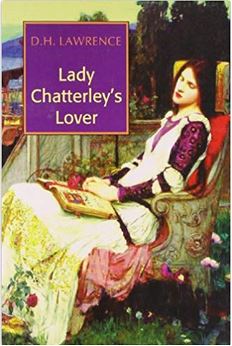 First published in Italy in 1928, the full version of 'Lady Chatterley's Lover' didn't appear in the UK until 1960. Upon its release, the publishers, Penguin Books, were tried under The Obscene Publications Act 1959, making this an important test case for the new law. The book had become notorious for its story of the relationship between two individuals from different social classes, explicit descriptions of sex and profanity. The verdict, a triumph for common sense and literary freedom in my opinion, was a 'not guilty' one. To twenty-first century readers, the book won't deliver the same kind of shock it did in the nineteen twenties. Back then, the sexual content and swearing held far more power to offend, but I suspect the main reason for the disapproval it generated was the story's crossing of class divisions. The book has also been banned and featured in obscenity trials in Australia, America, Japan, India and Canada. Here's a synopsis: Constance Reid marries Sir Clifford Chatterley, who becomes paralysed from the waist down after the First World War. Desperate for an heir and embarrassed by his inability to satisfy his wife sexually, Clifford gives the go-ahead for her to have an affair, envisaging she will choose someone from their immediate social circle. Instead, Constance begins a passionate relationship with their married gamekeeper, Oliver Mellors, inciting Clifford's ingrained class prejudices. The story ends with Mellors working on a farm, waiting for his divorce, with Connie, now pregnant, living with her sister. The expectation is that, eventually, they will be together. 4. 'Tropic of Cancer' by Henry Miller 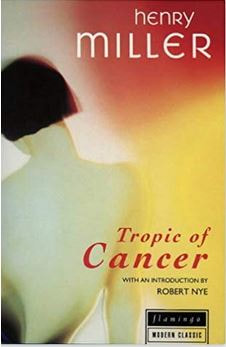 Henry Miller wrote 'Tropic of Cancer' in the early 1930s, and it was originally published in Paris in 1934. The book was banned in the US for more than thirty years because it was considered pornographic. Grove Press published it in America in 1961, leading to more than sixty obscenity trials until (finally!) the Supreme Court ruled it a work of literature in 1964. Other English-speaking countries, such as Canada and the UK, banned 'Tropic of Cancer'. Only smuggled copies of the book were available in the United Kingdom from 1934 onwards. Scotland Yard contemplated banning its publication in Britain in the 1960s, but decided against the move because people like T S Eliot were ready to defend the book publicly. Another victory for literary freedom! So what was all the fuss about? Set in Paris in the 1930s, the book is largely autobiographical, featuring a starving American writer who lives a bohemian life among prostitutes, pimps, and artists. Meaning lots of sex - oh, the horror! Miller gave the following explanation of the book's unusual title. "To me cancer symbolises the disease of civilisation, the endpoint of the wrong path, the necessity to change course radically, to start completely over from scratch.” Yet another one to add to my reading list! 5. 'Lolita' by Vladimir Nabokov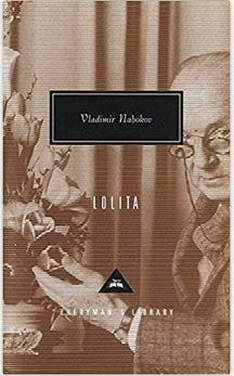 'Lolita' was written in English by its Russian author, Vladimir Nabokov, and first published in Paris in 1955. It seems French attitudes to controversial subjects are more relaxed than those of the US and UK. I can't help noticing how the books I'm featuring in this post often gained acceptance first in Paris. American and English versions followed in 1958 and 1959. The initial reaction was mixed. Graham Greene, in the Sunday Times, called it one of the three best books of 1955, whereas John Gordon, editor of the Sunday Express, dubbed it the filthiest book he had ever read. The Home Office promptly seized all copies entering the UK, and in 1956 France banned 'Lolita' for two years, thus blotting their liberal copybook. The US, however, reacted differently, and the book has never been banned there. A novel about a man who marries a woman so he can embark upon a relationship with her twelve-year-old daughter is bound to be controversial. The furore rumbles on today; recent sex abuse cases coming to light have ensured the book remains a source of debate. Critics disagree as to whether Lolita was a victim or a willing participant in her sexual relationship with the protagonist Humbert Humbert. Some have interpreted their liaison not as the corruption of an innocent child by a cunning adult, but the exploitation of a weak adult by a corrupt child. Others have labelled Humbert a rapist and paedophile. The book's influence is such that the name Lolita has passed into common usage to describe a sexually provocative young girl. Let's hear from you! Have you read any of the books I've featured in this post? Do any of them offend you? Or perhaps you consider them victims of outmoded thinking? Leave a comment and let me know!
1 Comment
Syafei Atmodiwiryo
11/6/2022 03:03:30
I have read this book maybe 60 years ago when I was an undergraduate student in Bogor, Indonesia. The narrations seem rather boring with slow descriptions and many repetitive sentences. And at that time, the idea of an adult seducing or seduced by a "nymphet" was out of the box (hehehee....)
Reply
Leave a Reply. |
Categories
All
Subscribe to my blog!
Via Goodreads
|
Join my Special Readers' group and receive a free copy of 'Blackwater Lake'!
|
Privacy policy Website terms and conditions of use
Copyright Maggie James 2018 - current date. All rights reserved.
Copyright Maggie James 2018 - current date. All rights reserved.
 RSS Feed
RSS Feed
